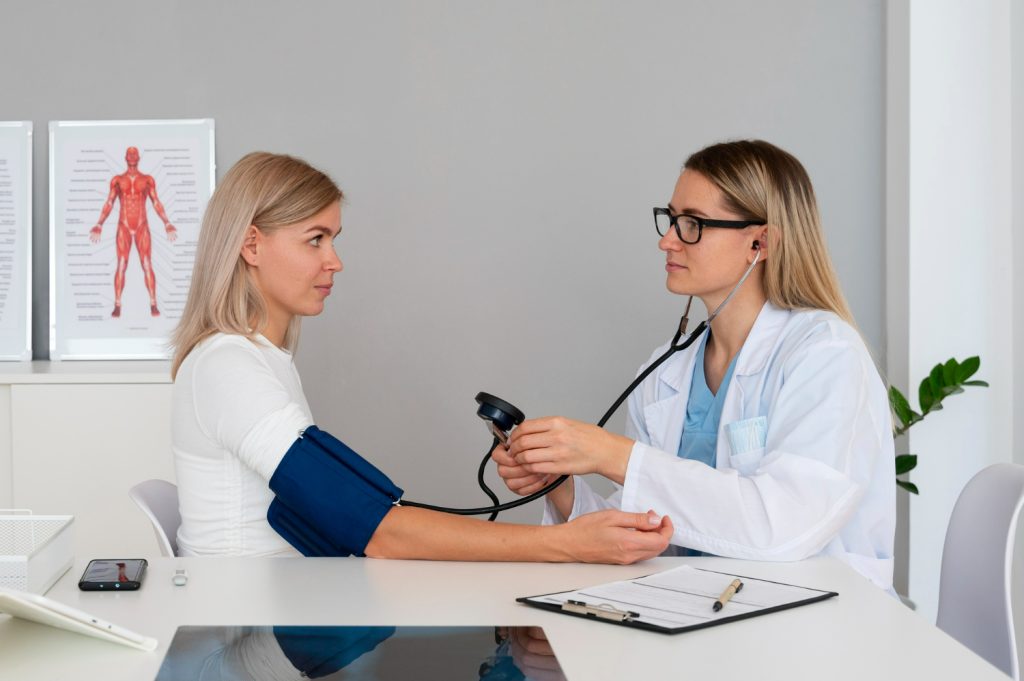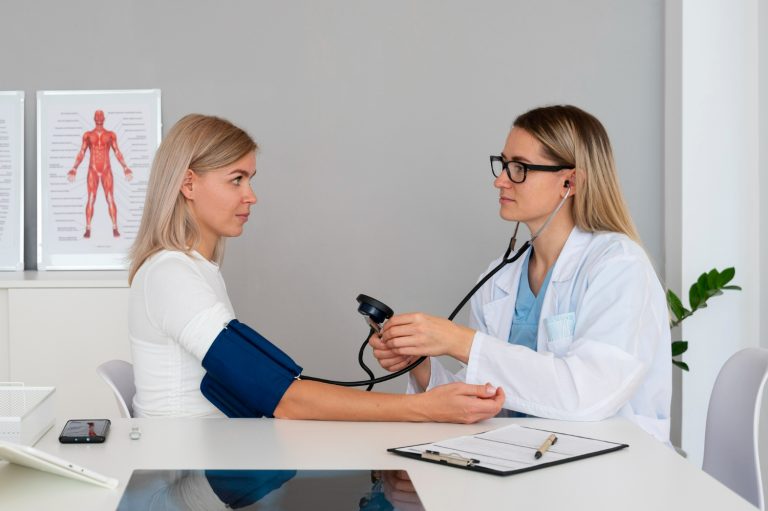In today’s world, where everyone strives for a healthy and active lifestyle, preventive medical examinations and regular health check-ups are a key element of taking care of one’s own health. These examinations not only help prevent the development of many diseases, but also play an important role in the early detection of existing problems, when treatment will be most effective and less costly.
The Importance of health check-up
Preventing diseases is always preferable to treating them. Regular preventive check-ups can detect diseases at the earliest stage, when the chances of complete cure are much higher. In addition, prevention is much cheaper than treatment of advanced stages of disease, which may require expensive medical intervention, including surgery and long-term rehabilitation.
Statistics show that regular health check-ups contribute to longer and better quality of life. For example, early detection of conditions such as hypertension and diabetes can help prevent the development of serious complications such as cardiovascular disease and kidney failure. And regular screening for cancer significantly increases the chances of a successful cure.
Why you should get preventive health check-up
Preventive health screenings offer a variety of benefits to maintain your health and well-being for years to come. Here are the main benefits of such health check-ups:
- Early detection of diseases
Preventive diagnosis: Many diseases, including cancer, cardiovascular and endocrine disorders, can be asymptomatic in the early stages. Regular preventive screenings can help detect them early, when treatment is most effective and less invasive.

- Monitoring chronic conditions
Health Monitoring: For people with chronic conditions such as diabetes or hypertension, regular check-ups are vital to monitor the condition and prevent complications.
- Reduced medical costs
Saving on treatment: Investing in prevention can significantly reduce the cost of treating more serious conditions that develop due to lack of proper monitoring and intervention.
- Improved quality of life
Lifestyle and well-being: Preventive screenings often include counseling on nutrition, physical activity and stress management, which can help improve overall quality of life and promote longevity.
- Personalized recommendations
Personalized approach: Doctors provide individualized recommendations based on the results of your health check-up, allowing you to take better care of your health.
These benefits emphasize how important it is not to ignore regular health checks, even if you feel fine. A preventive check-up is an investment in your future that will help ensure a healthier and happier life.
How often should I get a check-up?
The frequency of health checks plays an important role in maintaining health and preventing disease. Regular check-ups can identify potential problems early, when treatment is most effective, and also help maintain overall well-being.
Basic recommendations for frequency of health check-ups:
- For healthy people:
Doctors often recommend getting a complete physical exam at least once a year. This includes general blood tests, urine tests, checking cholesterol levels, blood pressure and examining major organs. Regular check-ups help detect diseases such as diabetes, hypertension, heart abnormalities and other conditions that may develop asymptomatically in the beginning.

- Age specific:
-Young people (under 30): If a person does not have chronic diseases or other health problems, check-up can be done once a year or even less frequently. However, it is important to get regular check-ups to monitor health.
-Middle age (30 to 50 years old): As you age, your risk of various diseases such as hypertension, cardiovascular disease, type 2 diabetes, and cancer increases. Professionals may recommend more frequent health check-ups to monitor your body’s health.
-Elderly people (over age 50): As you age, it’s important to not only get regular check-ups, but also pay attention to more specific tests to detect early signs of age-related diseases such as osteoporosis, cancer, kidney disease and others. The approximate frequency of check-ups is twice a year.
- Chronic diseases:
People with chronic conditions such as bronchial asthma, hypertension, diabetes, heart disease or kidney disease should see a doctor more often than those without such conditions. The frequency of visits depends on the extent of the disease, the patient’s condition, and the recommendations of the treating physician. For example, diabetics are advised to get a check-up and tests such as glucose levels at least 3-4 times a year.
- Women and Men:
-Women: It is important to consider age and the presence of reproductive diseases. Women are advised to have gynecologic exams, including mammograms (for women over 40) and cervical cancer tests.
-Men: Men over the age of 40 should have prostate cancer screenings, as well as testosterone levels and general cardiovascular health checks.
- Risk Factors:
People who are exposed to a large number of risk factors, such as smokers, people who are overweight, or those who spend a lot of time in the sun, may be recommended by doctors to have more frequent check-ups. Also, people who work in unfavorable environments (e.g., manufacturing) should have special check-ups based on their occupational risks.

Conclusion
Regular medical examinations are an integral part of health care, which helps to prevent the development of diseases and timely detect them in the early stages, when treatment is most effective. Prevention is always cheaper and easier than treatment of neglected conditions, so it is important not to delay visits to the doctor, even if at first glance it seems that there are no problems.
The frequency of health check-ups depends on a variety of factors, such as age, gender, presence of chronic diseases, and risk factors. However, regardless of health status, regular health screenings can significantly improve quality of life, reduce medical costs, and increase life expectancy.
By investing in preventive screenings today, you’re investing in your future, ensuring you’ll live many years of active and healthy life. Remember, taking care of your health is an investment that is sure to pay off.





